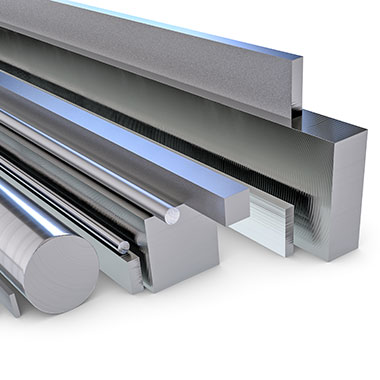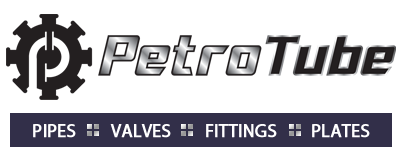Stainless Steel | Alloy Steel | Duplex Steel | Super Duplex | Carbon Steel | Monel | Nickle Alloys | Inconel | Incoloy | Hastelloy | Galvanized Steel | Titanium | Tool Steel | Hot Rolled Steel | Cold Rolled Steel | Aluminium | Copper | Bronze
The same properties that qualify tool steels for tools and dies are also used for other parts that require resistance to wear, stability during heat treatment, strength at high temperatures, or toughness. Tool steels are increasingly being used for mechanical parts to reduce size or weight, or to resist wear or high-temperature shock.
Tool steels are metallurgically “clean,” high-alloy steels that are melted in relatively small heats in electric furnaces and produced with careful attention to homogeneity. They can be further refined by argon/oxygen decarburization (AOD), vacuum methods, or electroslag refining (ESR). As a result, tool steels are often specified for critical high-strength or wear-resistant applications. Because of their high alloy content, tool steels must be rolled or forged with care to produce satisfactory bar products.
To develop their best properties, tool steels are always heat treated. Because the parts may distort during heat treatment, precision parts should be semifinished, heat treated, then finished. Severe distortion is most likely to occur during liquid quenching, so an alloy should be selected that provides the needed mechanical properties with the least severe quench.
Tool steels are classified into several broad groups, some of which are further divided into subgroups according to alloy composition, hardenability, or mechanical similarities.
Water-hardening, or carbon, tool steels, designated Type W by AISI, rely solely on carbon content for their useful properties. These steels are available as shallow, medium, or deep hardening, so the specific alloy selected depends on part cross section and required surface and core hardnesses.
Shock-resisting tool steels (Type S) are strong and tough, but they are not as wear resistant as many other tool steels. These steels resist sudden and repeated loadings. Applications include pneumatic tooling parts, chisels, punches, shear blades, bolts, and springs subjected to moderate heat in service.
Cold-work tool steels, which include oil and air-hardening Types O, A, and D, are often more costly but can be quenched less drastically than water-hardening types. Type O steels are oil hardening; Type A and D steels are air hardening (the least severe quench), and are best suited for applications such as machine ways, brick mold liners, and fuel-injector nozzles. The air-hardening types are specified for thin parts or parts with severe changes in cross section — parts that are prone to crack or distort during hardening. Hardened parts from these steels have a high surface hardness; however, these steels should not be specified for service at elevated temperatures.
Hot-work steels (Type H) serve well at elevated temperatures. The tungsten and molybdenum high-alloy hot-work steels are heat and abrasion resistant even at 600 to 1,000°F. But although these alloys do not soften at these high temperatures, they should be preheated before and cooled slowly after service to avoid cracking. The chromium grades of hot-work steels are less expensive than the tungsten and molybdenum grades. One of the chromium grades H11, is used extensively for aircraft parts such as primary airframe structures, cargo-support lugs, catapult hooks, and elevon hinges. Grade H13, which is similar to H11 is usually more readily available from suppliers.
High-speed tool steels — Types T (tungsten alloy) and M (molybdenum alloy) — make good cutting tools because they resist softening and maintain a sharp cutting edge at high service temperatures. This characteristic is sometimes called “red hardness.” These deep-hardening alloys are used for steady, high-load conditions rather than shock loads. Typical applications are pump vanes and parts for heavy-duty strapping machinery.
Other grades, called special-purpose tool steels, include low-cost, Type L, low-alloy steels, often specified for machine parts when wear resistance combined with toughness is important. Carbon-tungsten alloys (Type F) are shallow hardening and wear resistant, but are not suited for high temperatures or for shock service.
Type P mold steels are designed specifically for plastic-molding and zinc die-casting dies. These steels are seldom used for nontooling components.
Many steel mills have formulated their own special-purpose tool-steel alloy. Such alloys may not match a specific AISI designation and must be specified by trade name. Special-purpose tool steels may be superior to the standard grades when used as intended, but they should be specified only after careful evaluation of mechanical properties, heat-treat behavior, and availability in comparison with the standard grades.
